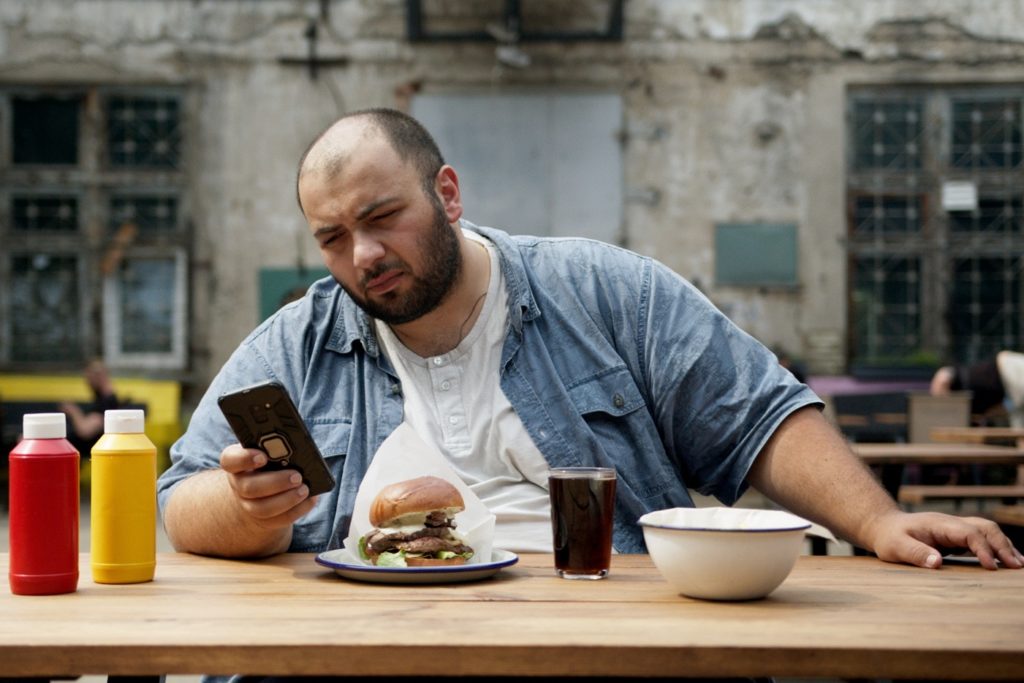A people self-governs if rulers answer to citizens. But if citizens fail to govern their characters and are instead ruled by passion, then political self-government becomes either a bad joke or simply impossible. Leo Strauss said in 1959 that “democracy in a word is meant to be an aristocracy that has broadened into a universal aristocracy.” The aspiration implies a duty: to admonish, for the sake of shared political hopes and fates, those who do not do what is rightly asked of citizens.
If Kevin Williamson’s Big White Ghetto is correct, many of the Americans most upset at having no voice in national politics also—given their present cultural state—least act like they deserve one. “The white underclass is in thrall to a vicious, selfish culture whose main products are misery and used heroin needles,” Williamson writes of one of the Republican Party’s main constituencies. “Donald Trump’s rallies make them feel good. So does Fox News. So does OxyContin.” Tough stuff, but Williamson loves—in a harsh, disinterested, American way—the members of the white underclass whose habits harm themselves, their loved ones, and a republic in need of a more humane patriotism. Restoring self-government worthy of the name will mean changing this white underclass culture, not indulging those it kills by the thousands each year. Conservatives purport to be politically adult. Williamson has some unflattering truths about those they claim to represent.
Both liberals and conservatives will squirm at the facts Williamson cites to justify his bleak judgment of Greater Appalachia. First, there are the usual big-government suspects. For instance, the poverty rate in Booneville, Kentucky is 50 percent higher than it is in the Bronx, and a family of four can receive thousands of dollars in welfare per month. That’s enough to live tolerably, but not much more. Much of the relief is in the form of Social Security benefits linked to child disability status. But if children can read well enough, they lose the status, which is why Nicholas Kristof found many families preferring their children forgo literacy programs to losing a welfare check. More money comes in food stamp dollars, often laundered via cases of soda into cash for drugs. There was coal mining once in Owsley County, of which Booneville is the seat. Bureaucracy (and geology) drove capital and the best workers elsewhere.
A conservative might predict that the degeneracy just described has its source and principal effect in bad family situations and criminality: mothers unsupported by husbands, sons growing up unruly because lacking a father’s discipline. Except there isn’t much violent crime in the Big White Ghetto—about half the national rate in many places. Married couples head most poor households. Abortion rates are low. Teen girls get pregnant more than nationally average, but those who do tend to get married. Add in a “strain of fervid and sometimes apocalyptic Christianity” and you have a cultural situation that’s “not exactly the sort of thing out of which conservative indictments are made.”
Start your day with Public Discourse
Sign up and get our daily essays sent straight to your inbox.The plain hopelessness of poor, white America manifests most sadly in its drug problem. According to Nobel-winning economist Angus Deaton, the leading killers of white American men without college degrees are now alcoholism and overdoses from opioids, legal and not. Life expectancy for these men is declining: male life expectancy in Owsley, Kentucky lags that of Fairfax, Virginia (just south of Washington, D.C.) by a decade. Oxycodone, prescribed for pain and the subject of some terrifically expensive litigation, is a gateway drug to heroin, which, nowadays, is often spiked with fentanyl. In 2014, 30,000 out of almost 50,000 lethal overdoses in America were from heroin and prescription pills. Alcoholic liver failure takes more lives in addition.
In the families of drug addicts (not all of whom are poor) Williamson finds addict ancestors and divorce, but also “a general sense of directionlessness.” Drug addicts are often “from that great vast America whose people simultaneously have too much and too little,” and opioids palliate the emptiness. It’s not too expensive to live in the Big White Ghetto. Welfare and low-paying jobs can make ends meet in many counties, and alas, those who hold them too often squander their money on lottery tickets, liquor, and pills. “The government gives people checks, but nobody teaches them how to live,” one Kentucky school principal tells Williamson. Give resources to people who, for whatever reason, do not control their impulses, and those people will put those resources toward satisfying those impulses.
Williamson is rebutting the common conservative story that the white underclass lives badly because of external forces. “The incomprehensible malice” of poor white America cannot be explained by a natural disaster or a catastrophic war. None occurred. Appalachia has never been especially prosperous, though the resource-rich parts of that country and the industrial parts of a state such as Ohio provided good middle-class lives for many citizens. De-industrialization explains some of the poverty, and welfare explains some of why poor people often needn’t work to survive. But neither can explain pervasive drug use and alcoholism, divorce, or the desire to remain in regions without good prospects. Only the free choices of human beings can explain those things.
Then again, telling the white underclass that it’s a millions-strong victim of all forces but itself sure does win votes. It’s also “the political equivalent of selling them heroin,” further depleting these communities of their last best hope: a sense of agency, of which Williamson finds a dearth. He visits eviction court and listens for hours as people narrate their lives in impersonal events, rather than actions performed by themselves or others: “Domestic events happen. Checks come or don’t come. (Mostly they don’t.) Husbands are sent to jail because of the crime that was committed.” Williamson’s research plus childhood experience with homelessness and violence taught him that, in many more cases than the white underclass’s current apologists think, folks would live better if they just tried living better. “The opposite message—that life is hard and unfair, that what is not necessarily your fault may yet be your problem, that you must act and bear responsibility for your actions” is what many putative conservatives preached until Donald Trump won on the opposite message.
So what is to be done? First is to renounce what might be American conservatives’ most cheerful delusion: that the small towns of white America are wrongly maligned repositories of republican virtue. Williamson writes that many of these towns “deserve to die. Economically, they are negative assets. Morally, they are indefensible.” Their residents would live better if dispersed to more prosperous suburbs and cities. (Williamson has been writing for years with dismay about Republican abandonment of cities). But this part is easy. People like handouts. U-Haul subsidies would be an entitlement promoting, say, geographic mobility.
The harder task is implied by the populist message itself. Donald Trump and his acolytes say poor white Americans are victims. The unintended subtext is that poor white Americans cannot help themselves. If they could, they would neither need nor stand for grievance-peddling tribunes. Alas, the fixes conservatives and liberals propose—welfare, better schools, better jobs, better healthcare—will fail to help if the intended recipients do not want to better their conditions. Where Williamson dissents most powerfully from the right-wing consensus about white poverty is in proposing that poor white people themselves are the secret missing ingredient. The problems Williamson studies bottom out in many individual wills, each one the sole, non-transferable property of the human being in which it resides. Local matters will improve when these wills are rightly ordered.
So will national politics. Conservative leaders now mostly neglect a conservative task: telling those they purport to lead that there is little the US Congress or Supreme Court can do to fix broken lives. Not that Williamson is some heartless Randian. On the contrary: “We have a positive moral obligation to help the poor, and not just the ‘deserving’ poor,” he writes. The question conservatives should ask is who ought to do the helping, and what counts as help in any case. Policy can tax vice and remunerate virtue. But policy cannot, at any level, do what churches, fathers, mothers, friends, and coworkers can do, which is to invite individuals into fruitful, sacrificial communities. To take just one example: conservatives rightly worry about low birthrates and now propose cash transfers (often unlinked from work) and other policies as remedies. But birthrates aren’t down because the young lack money. Looking at birthrates in poor countries shows how preposterous this theory is. Fertility is down because people have children only if they have both hope and priorities ranking higher than their own pleasures. You cannot legislate your way out of national ennui.
What can get us out of national ennui, the kind of lostness that leads people to shoot up, neglect their kids, not work, and embrace charismatic religion and politics? What principles do we have left to appeal to? Usually it’s commitments both thick and narrow—a shared neighborhood, vocation, church, country—that guide charity and the joint projects we call civil society. Few people act from pure “moral obligation.” If Williamson is correct, many of our fellow Americans are simply bad at self-government, personally and politically. He resists comparisons between nation and family, identifying American conservatism with “the classical-liberal philosophy of the American founding.” Tragically, liberalism may both depend upon and quietly destroy the illiberal institutions, like family and church, and the illiberal virtues, like solidarity and sacrifice, that sustain any humane society. Whether liberalism has the resources to renew the personal and political ideal of self-government, or whether we need to look toward a horizon beyond liberalism, is the question for today’s conservatives. We will know their answer by how they act toward the miserable multitudes whose votes they need, whose loves they share, and whose culture deserves a mix of pity and contempt.














